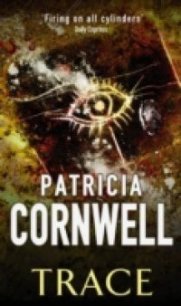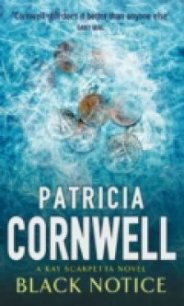All That Remains - Cornwell Patricia (читать хорошую книгу полностью TXT) 📗
When I heard footsteps behind me, I turned to find Wesley walking slowly in my direction.
"You wanted to talk to me, Kay?"
I nodded.
He slipped off his dark suit jacket and loosened his tie. Staring out at the river, he waited to hear what was on my mind.
"There are some new developments," I began. "I called Gordon Spurrier on Thursday."
"The brother?"
Wesley replied, looking at me curiously.
"Steven Spurrier's brother, yes. I didn't want to tell you about it until I'd looked into several other things."
"I haven't talked to him yet," he stated. "But he's on my list. Just a damn shame about the DNA results, that's still a major problem."
"That's my point. There isn't a problem with the DNA, Benton."
"I don't understand."
"During Spurrier's autopsy, I discovered a lot of old therapeutic scars, one of them from a small incision made above the middle of the collarbone that I associate with someone having trouble getting in a subclavian line," I said.
"Meaning?"
"You don't run a subclavian line unless the patient has a serious problem, trauma requiring the dumping of fluids very quickly, an infusion of drugs or blood. In other words, I knew Spurrier had a significant medical problem at some point in the past, and I began contemplating that this might have something to do with the five months he was absent from his bookstore not long after Elizabeth and Jill were murdered. There were other scars, too, over his hip and lateral buttock. Minute scars that made me suspect he'd had samples of bone marrow taken before. So I called his brother to find out about Steven's medical history."
"What did you learn?"
"Around the time he disappeared from his bookstore, Steven was treated for aplastic anemia at UVA," I said. "I've talked with his hematologist. Steven received total lymphoid irradiation, chemotheraphy. Gordon's marrow was infused into Steven, and Steven then spent time in a laminar flow room, or a bubble, as most people call it. You may recall Steven's house was like a bubble, in a sense.
Very sterile."
"Are you saying that the bone-marrow transplant changed his DNA?" Wesley asked, his face intense.
"For blood, yes. His blood cells had been totally wiped out by his aplastic anemia. He was HLA-typed for a suitable match, which turned out to be his brother, whose ABO type and even types in other blood group systems are the same."
"But Steven's and Gordon's DNA wouldn't be the same."
"No, not unless the brothers are identical twins, which, of course, they aren't," I said. "So Steven's blood type was consistent with the blood recovered from Elizabeth Mott's car. But at the level of DNA a discernible difference would have been noticed because Steven left the blood in the Volkswagen before his marrow transplant. When Steven's blood was recently taken for the suspect kit, what we were getting, in a sense, was Gordon's blood. What was actually compared with the DNA print of the old blood from the Volkswagen was not Steven's DNA, but Gordon's."
"Incredible," he said.
"I want the test run again on tissue from his brain because Steven's DNA in other cells will be the same as it was before the transplant.
Marrow produces blood cells, so if you've had a marrow transplant you take on the blood cells of the donor. But brain, spleen, sperm cells don't change."
"Explain aplastic anemia to me," he said as we started walking.
"Your marrow is no longer making anything. It's as if you've already been irradiated, all blood cells wiped out."
"What causes it?"
"It's felt to be idiopathic; nobody really knows. But possibilities are exposure to pesticides, chemicals, radiation, organic phosphates.
Significantly, benzene has been associated with aplastic anemia. Steven had worked at a printing press. Benzene is a solvent used to clean printing presses and other machinery. He was exposed to it, so his hematologist said, on a daily basis for almost a year."
"And the symptoms?"
"Fatigue, shortness of breath, fever, possibly infections, and bleeding from the gums and nose.
Spurrier was already suffering from aplastic anemia when Jill and Elizabeth were murdered. He may have been having nosebleeds, which would have occurred with very little provocation. Stress always makes everything worse, and he would have been under a great deal of stress while abducting Elizabeth and Jill. If his nose had started bleeding, that would explain the blood in the back of Elizabeth's car."
"When did he finally go to the doctor?"
Wesley asked.
"A month after the women were murdered. During his examination, it was discovered that his white count was low, his platelets and hemoglobin low. When your platelets are low you bleed a lot."
"He committed murders while he was that sick?"
"You can have aplastic anemia for a while before it becomes severe," I said. "Some people simply find out during a routine physical."
"Poor health and losing control of his first victims were enough to make him retreat," he thought out loud. "Years went by as he recovered and fantasized, reliving the murders and improving his techniques. Eventually, he was confident enough to start killing again."
"That could explain the long interval. But who knows what went through his mind."
"We'll never really know that," Wesley said grimly.
He paused to study an ancient grave marker before speaking again. "I have some news, too. There's a company in New York, a spy shop whose catalogs were found in Spurrier's house. After some tracking we've ascertained that four years ago he ordered a pair of night vision goggles from them. In addition, we've located a gun store in Portsmouth where he purchased two boxes of Hydra-Shok cartridges less than a month before Deborah and Fred disappeared."
"Why did he do it, Benton?"
I asked. "Why did he kill?"
"I can never answer that satisfactorily, Kay. But I've talked with his former roommate at WA, who indicated that Spurrier's relationship with his mother was unhealthy. She was very critical and controlling, belittled him constantly. He was dependent on her and at the same time probably hated her."
"What about the victimology?"
"I think he spotted young women who reminded him of what he couldn't have, the girls who had never given him the time of day. When he saw an attractive couple, it set him off because he was incapable of relationships. He took possession through murder, fused himself with and overpowered what he envied."
Pausing, he added, "If you and Abby hadn't encountered him when you did, I'm not sure we would have gotten him. Scary how it works. Bundy gets pulled because a taillight's out. Son of Sam gets nailed because of a parking ticket.
Luck. We were lucky."
I didn't feel lucky. Abby hadn't been lucky.
"You might find it interesting to know that since all of this has been in the news we've received a lot of phone calls from people claiming someone who fits Spurrier's description approached them outside bars, at service stations, convenience stores. It's been reported that on one occasion he actually got a ride with a couple. He claimed his car had broken down. The kids dropped him off. No problem."
"Did he approach only young male-female couples during these dry runs?"
I asked.
"Not always. Thus explaining how you and Abby fit that night he stopped to ask directions. Spurrier loved the risk, the fantasy, Kay. The killing was, in a sense, incidental to the game he was playing."
"I still don't completely understand why the CIA was so worried the killer might be from Camp Peary," I told him.
He paused, draping his suit jacket over his other arm.
"It was more than the MO, the jack of hearts," he said. "The police recovered a plastic computerized gas card in the, back of Jim and Bonnie's car, on the floor under the seat. It was assumed the card had inadvertently fallen out of the killer's pocket, a jacket pocket, maybe a shirt pocket, while he was abducting the couple."


